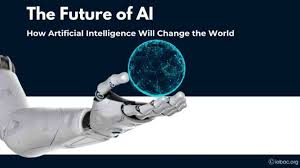Artificial Intelligence (AI) is no longer just a futuristic concept—it’s shaping the way we live, work, and interact with the world. From virtual assistants to self-driving cars, AI is transforming industries at an unprecedented pace. But what does this mean for the average person?
In 2025, AI will continue to revolutionize our daily lives, making things more efficient, personalized, and even more human-like. Let’s explore some of the most exciting AI advancements and how they are impacting the world around us.
1. AI in Healthcare: A New Era of Medicine
AI is making healthcare more accessible and accurate. With advanced diagnostic tools and robotic surgeries, doctors can provide faster, more precise treatments.
- AI-powered diagnostics: Tools like ChatGPT-powered medical assistants can analyze symptoms and suggest possible conditions.
- Personalized treatment plans: AI helps doctors create individualized plans based on genetic data.
- Remote patient monitoring: Wearable tech can track health in real-time and alert doctors to any concerns.
2. AI in Everyday Life: Smarter Homes and Assistants
From smart home devices to AI-driven personal assistants, our daily routines are becoming more convenient and efficient.
- Smart homes: AI-powered thermostats, security systems, and voice-activated assistants like Alexa and Google Home are making life easier.
- AI-driven shopping: Algorithms predict what you need before you even search for it, making shopping experiences seamless.
3. AI and the Future of Work
Automation is reshaping industries, but it’s also creating new job opportunities.
- AI-powered creativity: From graphic design to content creation, AI is assisting—not replacing—human creativity.
- Job evolution: While some jobs will become automated, AI will create new roles in tech, ethics, and AI management.
Conclusion
AI is here to stay, and its role in our daily lives will only continue to grow. While some fear automation replacing jobs, the reality is that AI is a tool that enhances human capabilities. By embracing these innovations, we can create a smarter, more efficient future.



 Share your Details for subscribe
Share your Details for subscribe